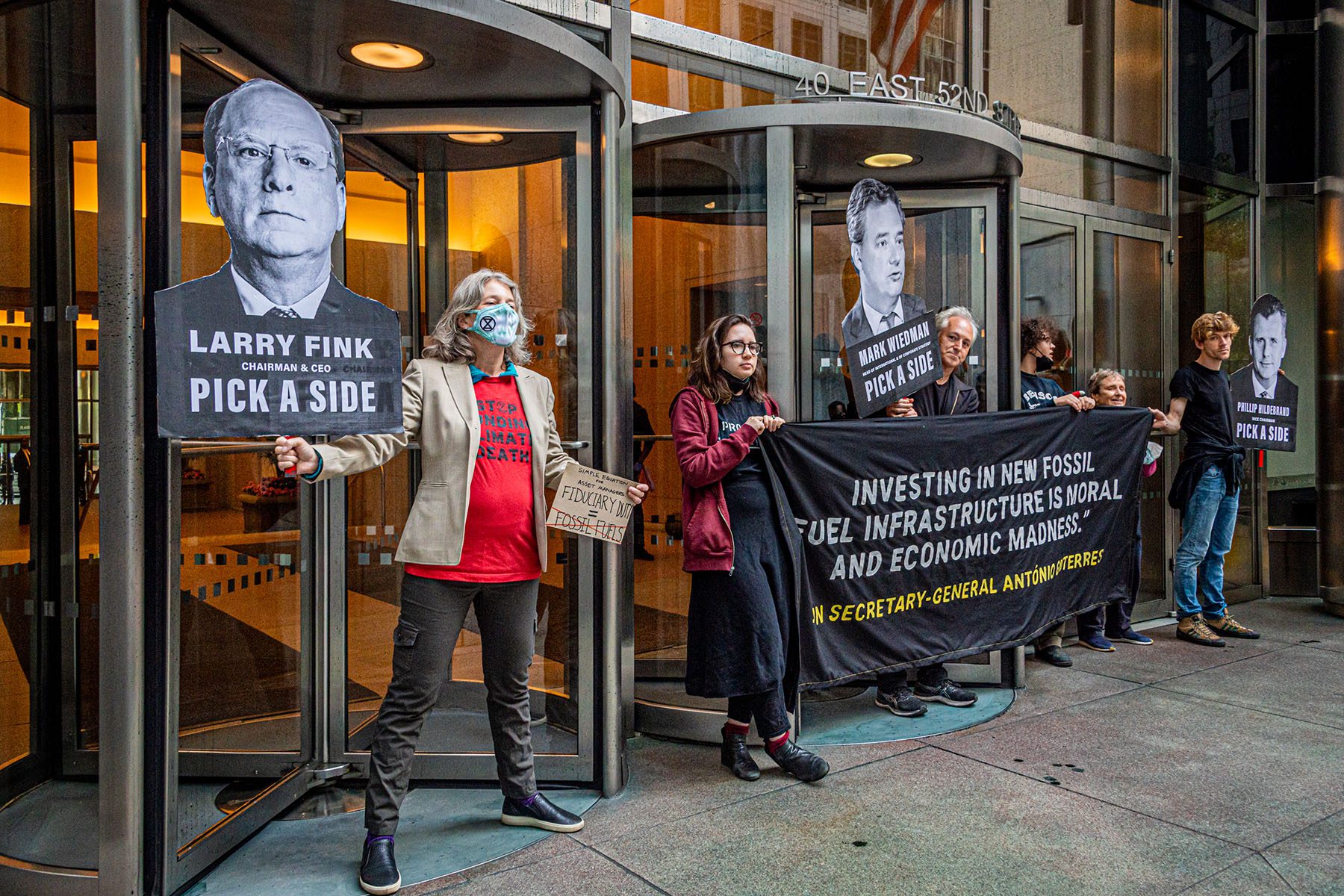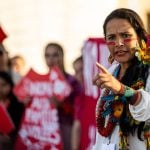After public outcry, UN Women has terminated a partnership with BlackRock, a company that manages $9.6 trillion in assets and is also one of the largest investors in the fossil fuel industry, the agency confirmed to The 19th.
A spokesperson for UN Women, the United Nations’ agency focused on promoting gender equality, said in an emailed statement that the organization had “heard the concerns raised by civil society.” Nearly 600 women’s rights and feminist groups and their allies sent a letter in early August decrying the partnership.
“Going forward, we will conduct a systematic review and assessment of our partnerships, which will inform our new private sector engagement strategy,” the statement to The 19th read.
In May of this year, UN Women signed an agreement with BlackRock “to cooperate in promoting the growth of gender lens investing,” according to a BlackRock press release. The collaboration between the two entities aimed to direct investments toward companies that would benefit women in some way, like education, child care or health care, and to grow the concept of gender-focused investments as a whole.
But many women’s rights organizations and environmental activists said the role BlackRock has played in bankrolling industries with poor human rights track records and its part in financing the climate crisis — a global emergency that disproportionately impacts women and other marginalized groups — felt contrary to UN Women’s mission. They also worried it gave BlackRock a veneer of credibility in the gender equality space, what some activists referred to as “pinkwashing.”
Kathryn Tobin, senior program manager for the Women’s Environment and Development Organization, which co-led the campaign to end the partnership, and other activists found it troubling that the agency approached BlackRock to begin with.
“We’re concerned with the embrace of the private sector rather than what we in the feminist movement, and our allies in the immigration movement, and the trade union movement, et cetera, are saying,” Tobin said. “The UN should be saying, ‘Hold on, corporate power is a problem. And the increasing influence and sheer wealth of these companies, especially BlackRock, is a problem.’”
Gaurav Madan, senior forests and lands campaigner at Friends of the Earth U.S. — another organization that signed on to the letter — said that the investment management firm is directly financing companies that are not just bad for the environment, but bad for people.
“They pump billions of dollars into fossil fuel companies, which is the largest contributor to the climate crisis,” he said. But, he added, they also invest in industries like palm oil and timber that not only lead to widespread deforestation but also human rights violations and violence against Indigenous peoples.
BlackRock also invested in surveillance technologies at the U.S.–Mexico border and companies that work with private immigrant detention facilities, Madan said, adding that the climate crisis will fuel even more international displacement in the coming years.
“It is marginalized communities that are hit the hardest from the climate crisis, which includes women. But we also see that when something like a racist immigration policy is put in place, it’s families and women and children that suffer through policies like family separation,” he said.
The UN’s close relationship with the private sector has been critiqued before. Tobin pointed to a recent story published in The New York Times detailing how the United Nations Development Programme partnered with a multinational petroleum company to provide $1.9 million in aid in a region of Colombia, where the company was also drilling on ancestral lands of an Indigenous tribe, the Siona people. The article detailed how in the past, when the UN partnered with oil companies, the agency “tamped down” local opposition to drilling.
In an emailed statement from BlackRock, the company stated that the money it invests is not its own.
“It belongs to our clients, many of whom make their own asset allocation and portfolio construction decisions. … We also engage with the companies in which our clients invest to encourage corporate governance best practices and the effective management of environmental and social risks and opportunities.”
But many activists say investment firms like BlackRock can do something by taking fossil fuel companies out of their portfolios. “What we are saying is that any fund they are marketing should not be fueling the destruction of the planet, or of the communities and wildlife that live here,” Madan said.
BlackRock has made commitments to promote sustainability in its investment framework, which has drawn the ire of oil-rich states like Texas. BlackRock has also pledged to go net-zero by 2050, which means getting to a place where any carbon emissions are offset by other means. But with some of these decisions being driven by the market more than a desire to address the climate crisis with urgency, environmentalists don’t think these efforts are enough. This year BlackRock announced that in company shareholder meetings it was planning to vote down climate proposals that were too demanding, according to CNBC.
Tobin said that while she is appreciative that UN Women acted so quickly to dissolve the partnership, she and others are asking to review all private sector partnerships and would like to see greater transparency about the kind of companies that UN Women seeks to work with.
“Is the theory of change, really, that private investment is going to be the thing that benefits women, especially women who live in poverty or facing marginalization of other kinds, who are Indigenous, or who live on threatened land?” Tobin said. “Somehow I think the profit imperative of the private sector isn’t quite going to be the thing that solves that kind of gender inequality.”






